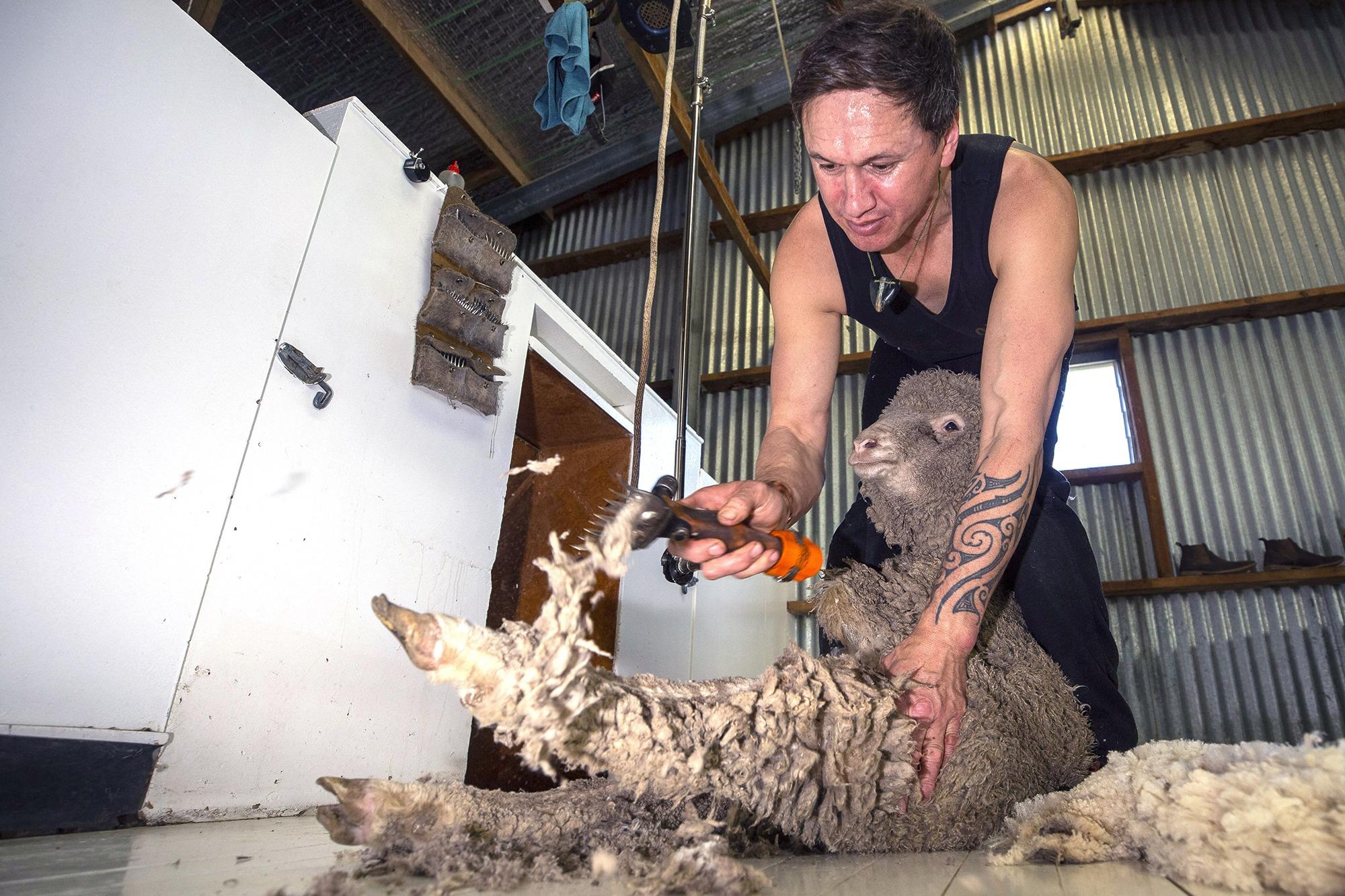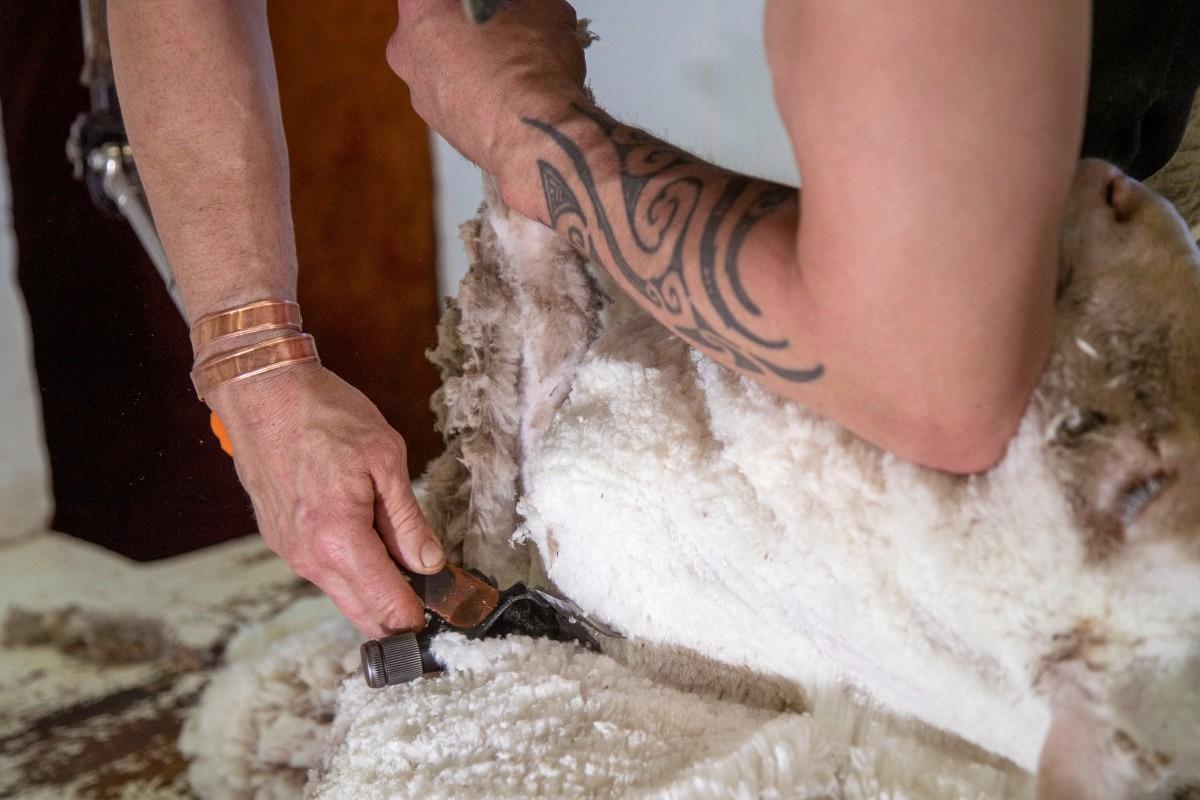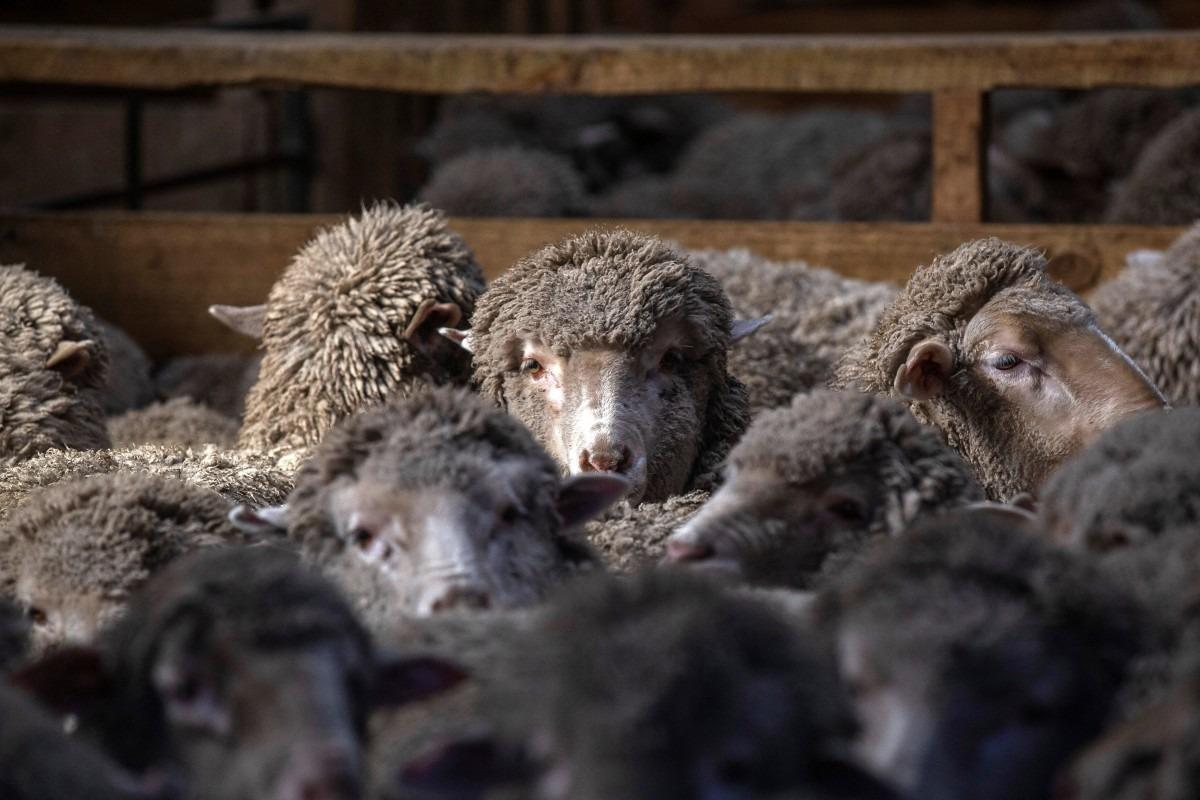 Kevin Patrick O'Neill, a sheep shearing group leader, works at the Lake Hawea Station, near the town of Wanaka in New Zealand on Sept 21, 2023. (PHOTO / AFP)
Kevin Patrick O'Neill, a sheep shearing group leader, works at the Lake Hawea Station, near the town of Wanaka in New Zealand on Sept 21, 2023. (PHOTO / AFP)
WANAKA, New Zealand — Classical music, soft mattresses and the gentlest touch of a wool clipper: welcome to the New Zealand farm indulging what may be the world's most pampered sheep.
Forget any preconceptions of rough-hewed shearers manhandling the flock as they quickly deprive them of their fleece in crowded, noisy wool sheds.
At Lake Hawea Station on New Zealand's South Island, owners Geoff and Justine Ross are advocates of the gentler, more soothing art of "slow-shearing".
The sounds of Debussy, Vivaldi and Mozart may be wafting through the shed as shearers usher the ewes from their pens before trimming off their thick wool with slow, methodical strokes of the clippers.
Shearers are paid according to the sheep's overall experience: stress, bruises and cuts can lead to lower wages.
The trimming is performed on pristine whitewashed boards, to better reveal any nicks inflicted on the sheep's skin.
 Sheep shearing gang leader Kevin Patrick O’Neill at work at the 6,500-hectare Lake Hawea Station, located on the eastern shores of Lake Hawea, near the town of Wanaka on the South Island of New Zealand. on Sept 21, 2023. (PHOTO / AFP)
Sheep shearing gang leader Kevin Patrick O’Neill at work at the 6,500-hectare Lake Hawea Station, located on the eastern shores of Lake Hawea, near the town of Wanaka on the South Island of New Zealand. on Sept 21, 2023. (PHOTO / AFP)
Once shorn, each sheep is guided toward a chute, where it slides into a holding pen — landing not on gravel but on a soft mattress.It is sheep shearing, reconsidered from the sheep's perspective.
"It came first from a place of care for the animal," Justine Ross told AFP.
"We're all about having happier, calmer sheep. That starts with the way we treat them.
"We raised lambs in our first season. Once you see their personality and their unique character, you know the great responsibility of their care. And we have 10,000."
On the station, there are "silent yards" where working dogs are trained not to bark while moving the merino flock.
In the hospital paddock, sick sheep get extra nutrition and medical treatment.
"You lose animals in farming, that's a fact, but sometimes with a little extra love and care, they come good," Ross said.
After reading that cows produce more milk if classical music is played, Ross decided to make additions to the playlist in the shearing shed, where high-tempo rock, pop or rap is typically heard.
"We sometimes play Mozart. Some dairy farmers use it as a way to calm the animals," Ross said.
"Vivaldi's Four Seasons is probably my favorite. We're just trying stuff to build a case for less stress for the animal and a calmer, happier shed."
 Sheep waiting to be shorn at the 6,500-hectare Lake Hawea Station, located on the eastern shores of Lake Hawea, near the town of Wanaka on the South Island of New Zealand. on Sept 21, 2023. (PHOTO / AFP)
Sheep waiting to be shorn at the 6,500-hectare Lake Hawea Station, located on the eastern shores of Lake Hawea, near the town of Wanaka on the South Island of New Zealand. on Sept 21, 2023. (PHOTO / AFP)
New Zealand is home to 5 million people and 25 million sheep.
It is one of the world's main wool exporters, sending 84 million metric tons, worth $232 million, overseas in the last financial year.
Shearing, meanwhile, is hard, physical work.
It demands skill and stamina to handle the sheep. Each weighs up to 60 kilograms and can give the occasional painful kick.
Traditionally, shearing was about speed, with little concern given to the occasional cut.
Nowadays animal welfare is a key factor, Carolyn Clegg from New Zealand's shearing association told AFP.
The priority remains to trim the best quality wool, she said, "but that extends to the sheep, you don't want them cut up or under stress, because that affects their welfare".


